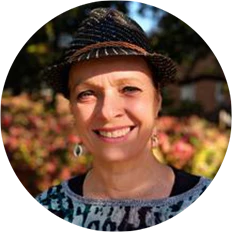“I value our meetings as a time to relax and examine different options for making my Judaic class more student-centered.”
“Setting specific goals has helped me with backward planning of instruction in my 5th grade Hebrew class”.
“I love having the opportunity to brainstorm with an experienced educator and come up with ideas to increase engagement and motivation in my Jewish ethics classroom.”
Many Jewish day school educators I have interacted with positively reflect on the BetterLesson coaching process. These specific educators have participated in a couple of virtual workshops and have been meeting with me bi-weekly this school year.
Coaching is Essential to Improvement
Coaching has become essential for transforming teacher mindset and classroom practice in Jewish day schools. Some of the benefits are:
Helping teachers become more effective in their roles.
Improving student outcomes.
Creating a culture of continuous improvement in the school community.
Designing engaging, student-centered classrooms that foster learning and growth.
Supporting teachers in becoming more comfortable integrating Jewish values and teachings into their classroom practice, which can profoundly impact students’ spiritual and ethical development.
A Challenge in Jewish Day Schools
Judaic studies and Hebrew teachers face unique teacher mindsets and classroom practice challenges.
A lack of a clear scope and sequence and an organized curriculum. Many teachers in Jewish day schools are tasked with building their curriculum and creating learning materials, projects, and assessment tools.
New teachers feel pressure to create engagement while motivating their students to make progress with little pedagogical experience.
Other teachers are set in their ways and do not feel the need to shift into a more student-centered environment.
How Coaching Can Help Jewish Day Schools
To be effective, coaching should be designed to meet these unique challenges of Jewish day school teachers.
The following strategy has helped with the challenge of schools not having an organized curriculum.
Building Strong Relationships
Coaching is most effective when teachers feel comfortable working with their coach and trust their coach’s expertise. Coaching should be personalized to meet the needs of each teacher by taking the time to understand the teacher’s strengths, weaknesses, and goals. When meeting with a coach aware of the challenges of the lack of an organized curriculum and organized learning materials, teachers will feel supported and motivated to try new strategies.
Coaching scenario: Sharing my experience as a Jewish day School Hebrew and Judaic teacher and coordinator helped me create a relationship of trust with Aviva L., a 5th-grade Hebrew teacher. I can genuinely tell her, “I have been there, ” and I deeply understand her curriculum’s strengths and challenges. I can also offer her strategies like Mild, Medium and Spicy Strategic Grouping that include Hebrew and Judaic examples.
The following strategies have helped with the challenge of new teachers needed guidance.
Setting Clear Goals
Coaching should focus on specific goals aligned with the school’s mission and vision. Goals should be tailored to individual teachers’ needs and designed to help them develop the skills and mindset necessary to create effective classroom environments. Understanding the lack of teachers’ pedagogical experience, the coach should be ready to offer the teachers resources and tools that will help them make a structured shift from a teacher-led classroom into a more student-centered environment.
Coaching scenario: When I started to meet with Rabbi Kohn, who is teaching middle school for the first time, we collaborated on selecting an outcome from the focus area of Teachership that could meet his needs while supporting a shift in his mindset. We looked at outcomes such as Culture for Learning, Instructional Delivery, and Instructional Design. In addition, I supported him in using the Try Measure Learn process as he enriched his toolbox with various methods of instruction and assessment that increased student engagement and motivation.
Using Data to Drive Improvement
Coaches should encourage Jewish day school educators to use data to drive improvement and help students. Since Judaic studies and the Hebrew language lack standardized testing, it is important to support teachers in creating assessment tools and committing to data-based outcomes.
Coaching scenario: I encouraged Jane S., a Jewish day school elementary school coach, to explore Formative Assessment and Differentiation. When she meets with educators in her school, she can now recommend strategies that support educators in planning assessments, offering targeted support to students, and reflecting on progress using data.
From Assessment to Differentiation
With the support of the Mayberg Foundation the school implemented a coaching program that focuses on formative assessment and differentiation and accelerating growth.
Coaching scenario: Shani S. is a Judaic teacher in a Community Day School in Texas. I was able to establish a positive connection with the teacher and use my experience to support her in her decision to take a risk and try new teaching strategies. I recommended various BetterLesson strategies such as Developing Project Based Learning in your Classroom, as well as helped her modify BetterLesson lessons like The Student Becomes The Teacher. I was able to guide her in developing more rigorous study plans and effective assessment tools that meet the needs of all her students. These shifts led to increased student engagement and achievement.
To address teachers set in their ways the following strategy has helped.
Providing Ongoing Support and Feedback
Coaching is a long-term process that requires ongoing support and feedback. Coaches should create the space for educators to reflect on their practice, identify improvement areas, and set growth goals. The opportunity to reflect and use thought-provoking questions might encourage teachers to be more open-minded and adopt a more student-centered approach.
Coaching scenario: I usually meet bi-weekly with Rachel M., a Hebrew reading intervention teacher, to create the opportunity for reflection and feedback on her progress. We use the prompts from the Teacher Reflection Journal to guide our conversation. We discuss obstacles she may encounter and examine ways to overcome them. During each meeting, I share strategies, tools, and resources that can support her in helping her students experience success.
Leading Through Goal Setting and Reflection
Coaching a leader can have impact throughout the school. When teachers observe an administrator being coached, they will be more inclined to be coached themselves.
Coaching scenario: Dawn P., a leader in a Jewish school on the west coast. Dawn is the director of Jewish Life and Learning and as a result of the coaching support was able to build shared goals with the staff that will engage and motivate students in the Hebrew and Judaic subject areas. Leading through change was the focus area we used in order to establish goals and plan targeted support. Some of the challenges we worked through were supporting team wellness, and accelerating learning and closing academic gaps. During coaching I was able to provide the leader with ongoing support and guidance to reflect on their practice, set goals, and receive feedback to improve their skills. I shared strategies such as Creating a Distributed Leadership Model and GROW: 4 Steps to an Effective Coaching Conversation and recommended creating a collaborative professional culture in the school that supports student-centered teaching and learning.
Investing in coaching as a tool for achieving growth and excellence can significantly impact the success of Jewish day schools. Coaching provides teachers and leaders with personalized support and guidance to improve their teaching skills, create better learning materials, and enhance classroom practices. It helps to shift teacher mindsets towards growth and encourages them to take risks and try new teaching strategies, ultimately benefiting the students. Investing in coaching also shows a commitment to professional development and a culture of continuous improvement, which can attract and retain high-quality teachers. Therefore, Jewish day schools should prioritize coaching to achieve growth and excellence and ensure that it is a fundamental part of their professional development programs. By investing in coaching, Jewish day schools can unlock the potential of their teachers and students and achieve excellence in both the classroom and beyond.
* All names were changed to respect the educators’ privacy.








